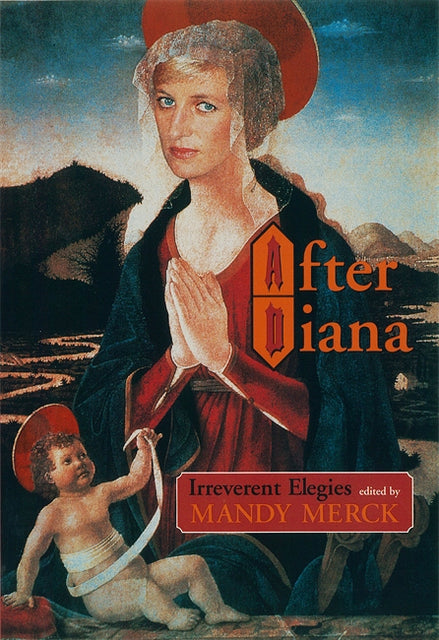
After Diana:Irreverent Elegies
The death of Diana, Princess of Wales, was met by the greatest public mourning witnessed in the 20th century. For those perplexed by the events surrounding Diana's death, this book seeks to provide some answers. It brings together writings which analyze her death rather than lament it.
The death of Diana, Princess of Wales, was met by the deepest mourning of the twentieth century. Two and a half billion people worldwide watched the funeral on television, floral tributes flooded London’s royal parks and sprung up, too, in small towns in Texas, conspiracy theories ricocheted around the Internet, commemorative stamps were issued in newly communist Hong Kong.
Press coverage of the death was also unprecedented in both its scale and uniformity. Yet, in an enormous welter of schmaltz, very little was said about the meaning of what had occurred—whether Tony Blair’s public emoting heralded a new kind of politics; what, if anything, the anguish of so many who never knew Diana in person revealed about modern society; how the intertwining of the ideas of celebrity and victim, physical beauty and moral worth, affected people’s responses; what was implied for the future of the royal family.
For those perplexed by the events surrounding Diana’s death, this book provides some answers. Insisting that all aspects of the affair are open to investigation, that nothing (and especially not royalty) is sacred, it brings together a group of distinguished writers whose primary interest is to analyze the death rather than lament it.
Contributors: Mark Augé, Jean Baudrillard, Sarah Benton, Homi K. Bhabha, Mark Cousins, Alexander Cockburn, Richard Coles, Régis Debray, Françoise Gaillard, Peter Ghosh, Christopher Hird, Christopher Hitchens, Linda Holt, Sara Maitland, Ross McKibbin, Mandy Merck, Tom Nairn, Glen Newey, Naomi Segal, Dorothy Thompson, Francis Wheen, Judith Williamson, and Elizabeth Wilson.
